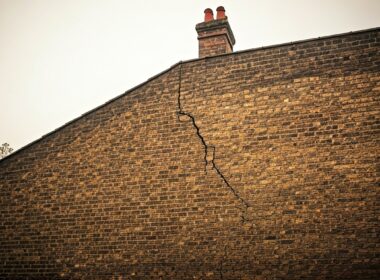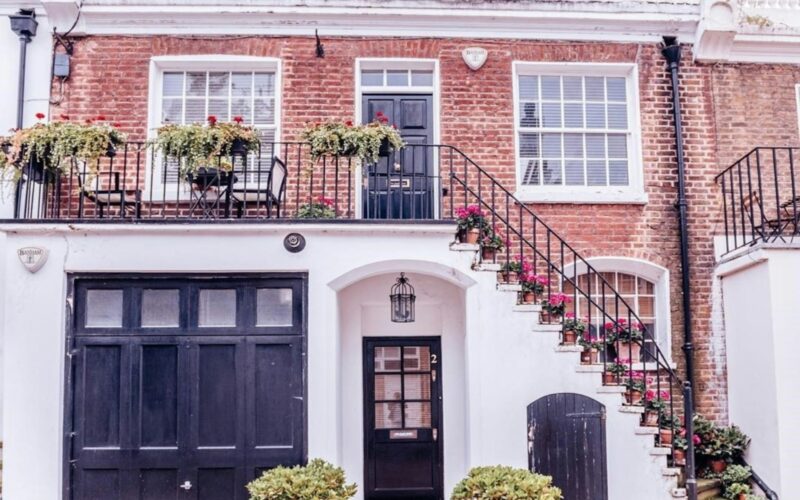The average UK house price rose to a new record high of £298,083 in November, according to Halifax’s latest house price index. Figures show a fifth consecutive monthly increase, with values climbing by 1.3% compared to October. Annually, prices are now 4.8% higher than a year ago, up from 4% growth in October.
Amanda Bryden, Head of Mortgages at Halifax, told The London Property News, “UK house prices rose for the fifth month in a row in November, up by 1.3% in the month—this is the biggest increase so far this year. This pushed the annual growth rate up to 4.8%, its strongest level since November 2022. As a result, the record average house price we saw in October edged higher still, with a typical property now costing £298,083.”
Ms Bryden noted that easing mortgage rates has bolstered buyer confidence, “Latest figures continue to show improving levels of demand for mortgages, as an easing in mortgage rates boost buyer confidence. However, despite these positive trends, many potential buyers and movers still face significant affordability challenges, and buyer confidence may be tested against a changeable economic backdrop.”
Looking ahead, Ms Bryden was cautiously optimistic, “As we move towards the end of the year and into 2025, positive employment figures and anticipated decreases in interest rates are expected to continue supporting demand. This should underpin further house price growth, albeit at a modest pace as borrowing costs remain above the average of a few years ago.”
Regional property prices and annual changes (November)
- Yorkshire and the Humber: £212,385 (+4.7%)
- East Midlands: £242,282 (+3.5%)
- Eastern England: £335,063 (+3.6%)
- London: £545,439 (+3.5%)
- North East: £175,737 (+4.4%)
- North West: £237,045 (+5.9%)
- Northern Ireland: £203,131 (+6.8%)
- Scotland: £208,957 (+2.8%)
- South East: £388,534 (+3.4%)
- South West: £304,558 (+3.7%)
- Wales: £225,084 (+4.1%)
- West Midlands: £257,982 (+5.5%)
Differing opinions and regional price variations
Not all experts share the same outlook. Richard Donnell has predicted that house prices may fall by 22%, pointing to longer-term economic pressures.
Nonetheless, regional figures from Halifax paint a mixed picture. Northern Ireland continues to outperform, posting a 6.8% annual increase, while the North West leads English regions with a 5.9% rise. Scotland’s housing market has grown more modestly, recording a 2.8% annual increase.
Nathan Emerson, Chief Executive of Propertymark, said, “With interest rates now easing, many buyers will have increased confidence to approach the housing market.” He also noted a likely surge in property listings and activity in England and Northern Ireland as buyers rush to complete purchases before stamp duty thresholds change in April 2025.
From next April, the “nil rate” band for first-time buyers is set to drop from £425,000 to £300,000, a move that many observers believe will prompt a flurry of activity ahead of the deadline.
Tom Bill, Head of UK Residential Research at Knight Frank, commented that the current market resilience may be short-lived, “An increase in borrowing costs and the disappearance of sub-4% mortgages in recent weeks means we expect downwards pressure on house prices to intensify next year.” He suggested that the current uptick is partly influenced by buyers eager to complete transactions before tax changes take effect, warning that affordability concerns and high inflation could temper future growth.
Karen Noye, a Mortgage Expert at wealth manager Quilter, echoed these sentiments, “Recent data from the Bank of England has shown rising mortgage approvals, alongside lower quoted mortgage rates, signalling that buyers are returning to the market. However, affordability remains key, particularly for first-time buyers still facing higher borrowing costs and steeper deposit requirements.”
Nigel Bishop of Recoco Property Search observed a general uplift in November buyer demand, enabling some sellers to achieve asking prices. Jeremy Leaf, an estate agent from north London, noted strong demand for competitively priced properties in more affordable areas.
Yet he cautioned that increased buying costs are deterring investors from smaller homes, while the lack of an extended stamp duty concession has opened opportunities for first-time buyers to enter the market, helping to release second-steppers and support ongoing chains.
With a complex mix of improving sentiment, affordability challenges, and impending tax changes, the UK housing market remains in a state of flux. Experts agree that as 2025 approaches, the interplay of economic conditions, policy shifts, and technological innovations in lending will continue to shape the path of house price growth.




